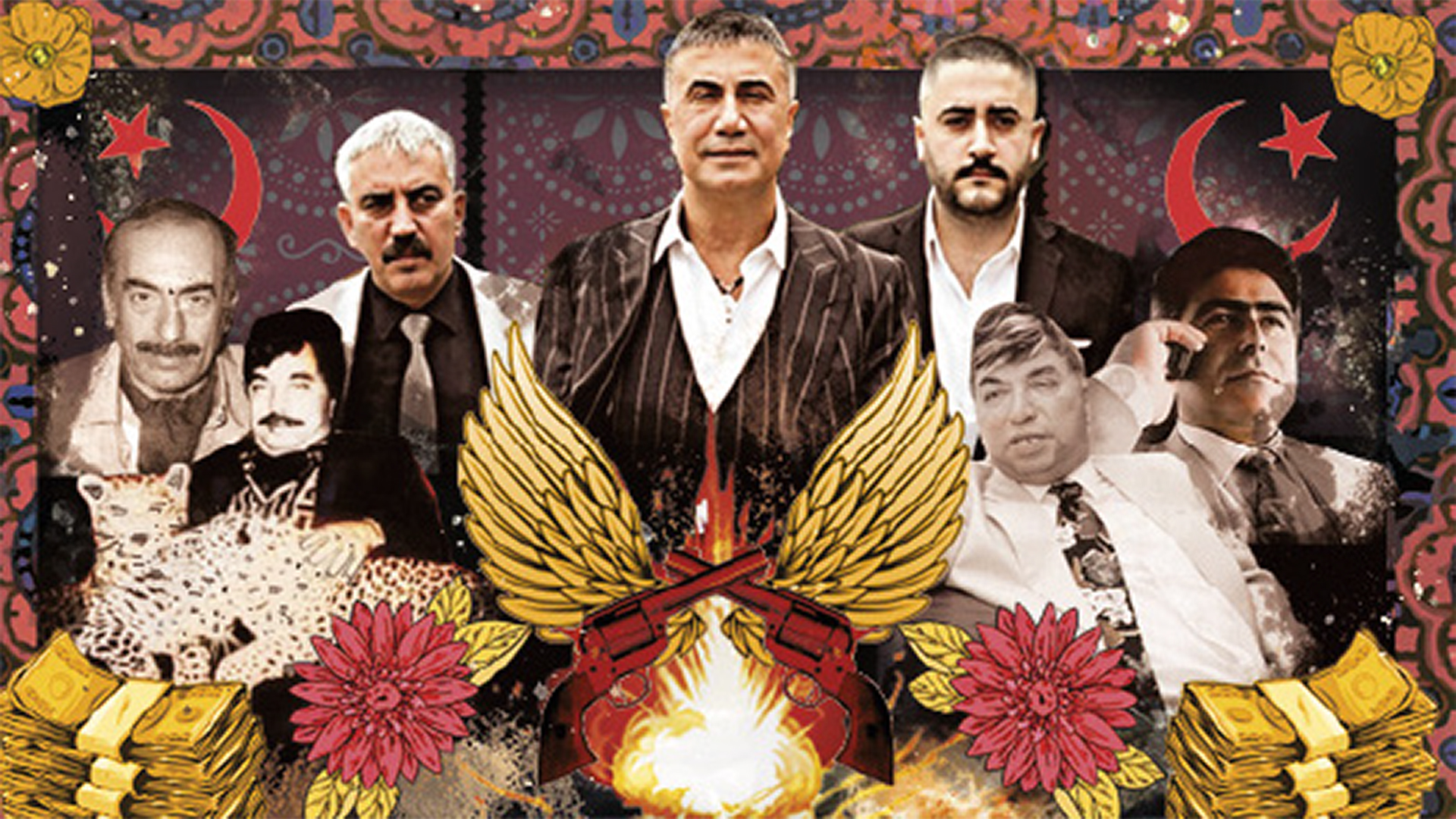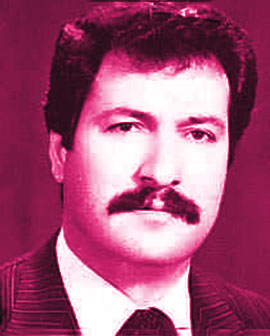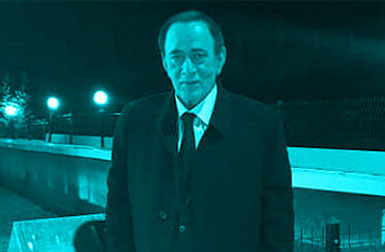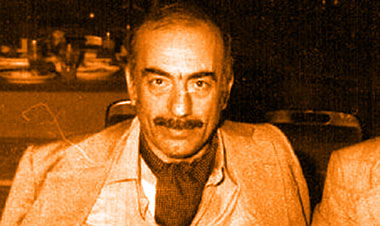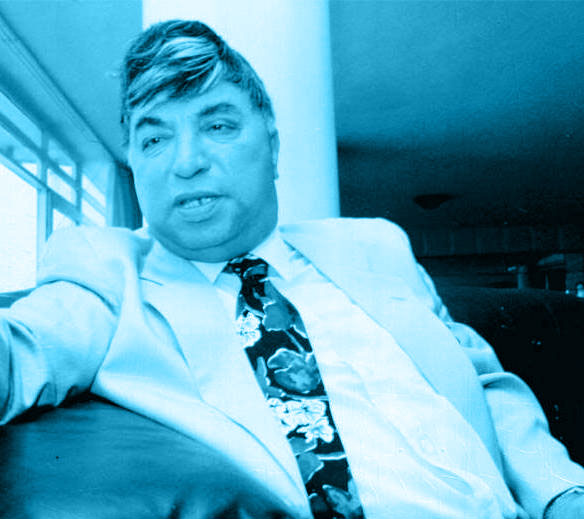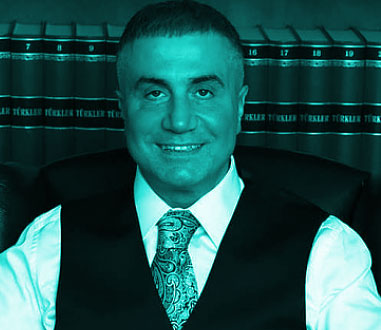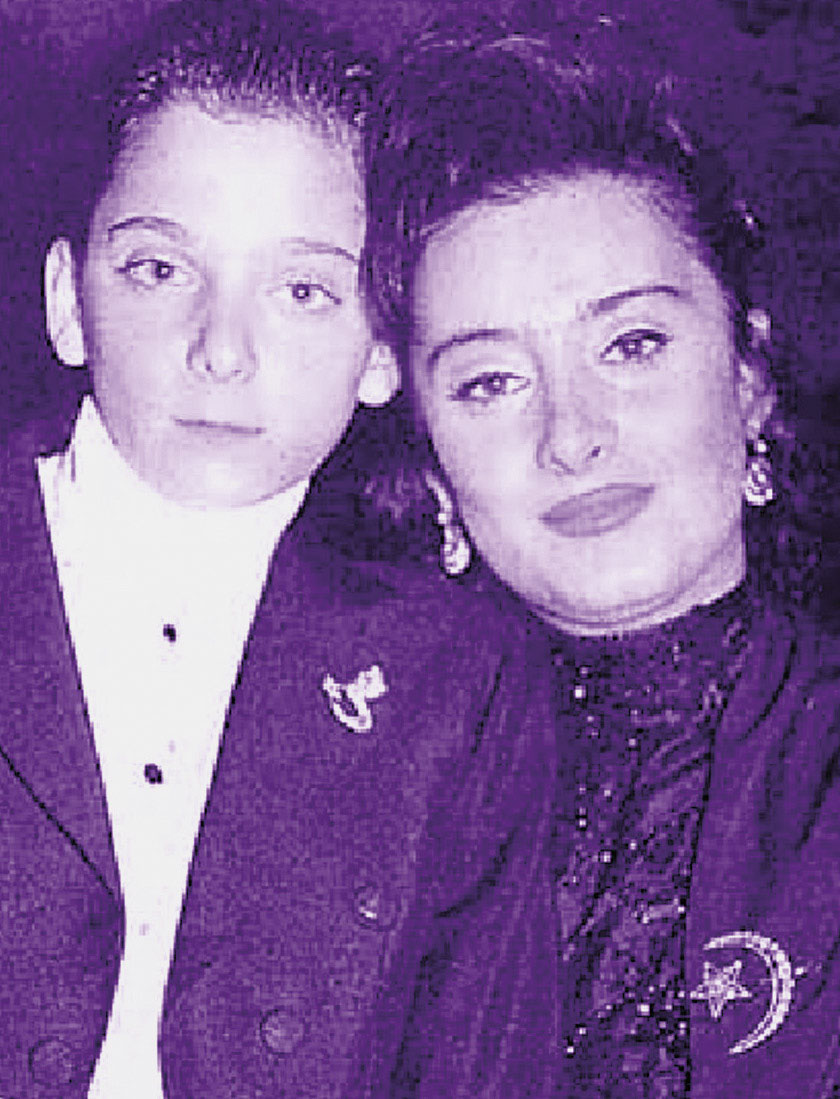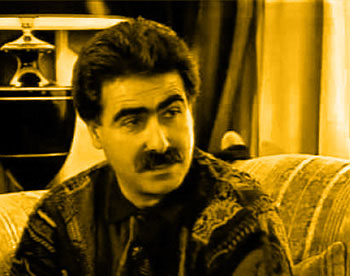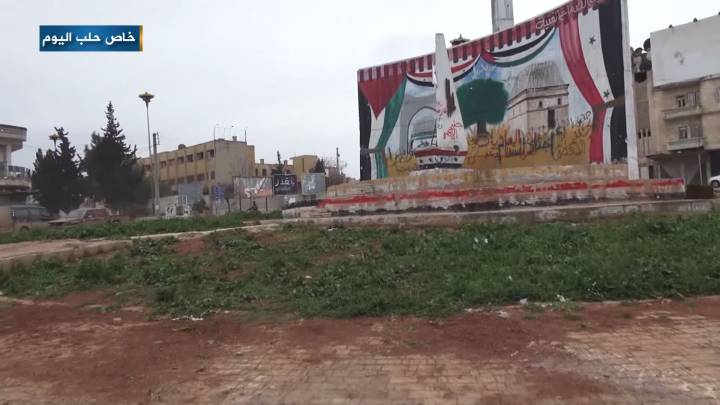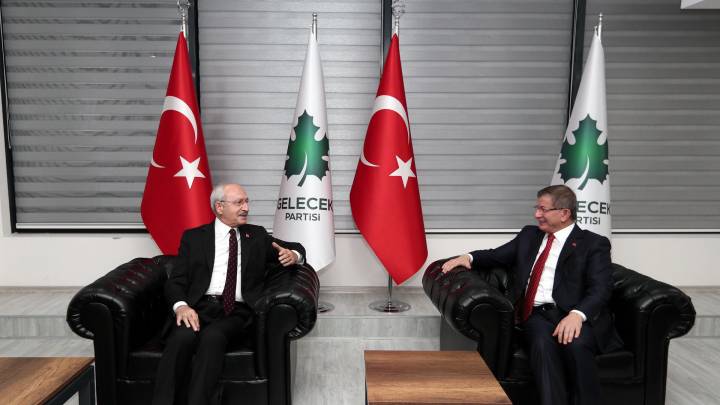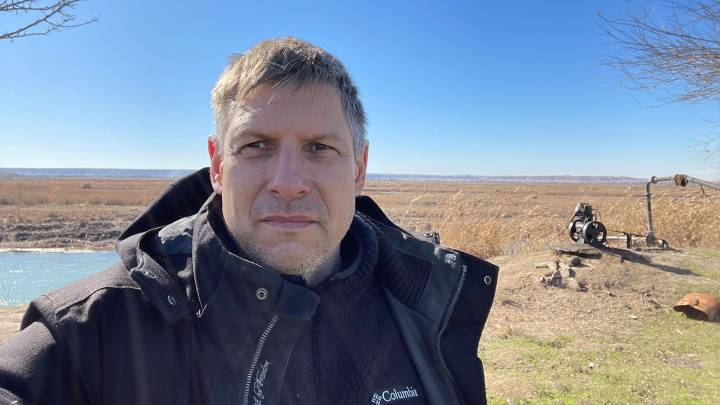The top dogs of the Turkish underworld can be found at the nexus of the country’s governmental and security elite. Pushing drugs has never been so political.
On 15 April 2020, the Turkish mafia boss Alaettin Çakıcı was released from prison as part of measures taken to relieve prison overcrowding amid the coronavirus pandemic. While political prisoners – journalists, opposition politicians, intellectuals, artists – can only dream of being granted amnesty, the Turkish lord of the underworld is now once again free.
Akin to its many of its neighbours, Turkey has long-established organised crime gangs – or in other words – mafya. These criminal networks, usually based on clan or regional affiliation, are deeply rooted in political, social, and economic life. Despite this – and a slew of trials, leaks, documentaries, and investigative articles in recent years – Turkish society remains largely indifferent to crime families and their activities.
The history of organised crime in Turkey dates to the Ottoman period, when it was characterised by the figure to the kabadayı – a villain who would engage in petty crime while adhering to an honour code and occasionally raising mobs at the behest of the political elite. A similar character is known as a louti in Iran, zughurt in Iraq, and baltaigyya in Egypt. The term kabadayı has fallen out of favour since The Godfather was released in Turkey, however, now baba or even reis, meaning ‘head’ or ‘chief’, are preferred.
Drug trafficking has long been the preserve of these criminal networks. Prior to the 1940s it was opium, but after the Second World War, although opium production remained important in rural areas, it was heroin where the big money was to be made. In the 1950s, Turkish heroin was smuggled through Armenian, Greek and Corsican hands to Marseilles and then onto the USA – the infamous ‘French Connection’. Following anti-Christian riots in the same decade, the trade was taken over by Turkish-speaking Muslims. These were the beginnings of the ascent of today’s mafiosos who cut their teeth in the political turmoil of the 1970s and reached their height during the 1980s and 1990s. The 1998 arrest in a French hotel of Alaattin Çakıcı, one of the leading mafia figures, brought a particularly profitable period to a close.
The Kurdish Connection
The Turkish mafia’s links to intelligence community are well-known. Politically, these groups tend to support right-wing parties like the MHP, but a fondness for opposite end of the political spectrum are not unheard of. Behçet ‘Beco’ Cantürk, a drug runner from Kurdish-speaking Lice in south-eastern Turkey, supported the Revolutionary Cultural Associations of the East (DDKD – Devrimci Doğu Kültür Dernekleri). Cantürk’s success in the narcotics trade as well as in the construction and transport industries also gave rise to rumours that he was a PKK backer. It is unclear whether he, like many of his Kurdish contemporaries, paid a ‘revolutionary tax’ to the organisation.
In the mid-1970s, Cantürk contacted smugglers in northern Syria - Armenian relatives on his mother’s side – who had friends in the Armenian Secret Army for the Liberation of Armenia (ASALA), an Armenian terror group responsible for assassinating Turkish diplomats across the globe. From there, Cantürk became more involved in selling arms – mainly from Bulgaria – to groups of all ideological persuasions and none. His success in the drugs trade and his attempts at diversification bought him wealth and renown in Europe but they did nothing to aid his longevity.
On 14 January 1994, he was snatched out of his car in the town of Sapanca just outside Istanbul by unknown men dressed in police uniforms. His corpse was found around the corner the next day. The nature of his abduction fuelled the theory that he had been murdered by security forces, so did the fact that Hüseyin Baybaşin, a fellow Lice native, had apparently warned Cantürk him he was on a hitlist of Kurdish businesspeople.
Europe’s Pablo Escobar
The Baybaşin clan has been active in both drug production and trafficking since the 1970s. Hüseyin Baybaşin, much like Cantürk, got his start in the family business as a teenager. After being caught several times in possession of illicit substances in Turkey and abroad, he was sentenced to 12 years in prison in the UK where he served only three years before being sent back to Turkey. When, in 1992, a Turkish security forces tried to seize MV Kısmetim-1, a freighter suspected of carrying 3,000kg of heroin on Baybaşin’s behalf, in the Mediterranean, the crew scuppered the vessel. This near miss undoubtedly played a role in Baybaşin’s relocation to London, where he was granted political asylum.
Baybaşin did not stay in the capital long. While his brother Abdullah relocated to North London to run a notorious protection racket known as the bombalar, Hüseyin settled in the Netherlands where – according to witness testimony – Mehmet Ağar, the Turkish General Director of Security, presented him with a list of PKK sympathisers to be killed. Baybaşin apparently accepted the ominous task on the condition that a blind eye was turned to the expansion of his operations in Europe. By 1998, Baybaşin was already the continent’s largest heroin supplier – Europe’s Pablo Escobar – raking in perhaps as much as $45 billion, much of which was invested in buying hotels across the UK and Mediterranean.
It was not to last. In March 1998, following a joint operation by UK, German, Belgian, Italian and Dutch police, Baybaşin was arrested with his nephew in his villa in Lieshout, a small village in the south of the Netherlands. He was sentenced to life imprisonment, which is his still serving despite several attempts to release him on health grounds. Given that the organisation's financial director, Nizamettin Baybaşin, lived in Germany and was married to a German, an important trial also took place in Germany in 2001, during which the clan tried to intimidate witnesses, judges and prosecutors.
Baybaşin’s elder brother Abdullah went to London in 1997, where he too was granted political asylum and settled down. He soon asserted himself against other criminals and collected taxes from them. For example, human traffickers had to pay £1,000 per person trafficked. Most importantly, he organised a group of Turks and Kurds aged between 14 and 18 with whom he extorted protection money from Turkish Cypriot and mainland Turkish businessmen. The group known as the bombers (bombacılar) was so brutal that some Kurdish businessmen turned to the PKK (KADEK, at that time) for protection.
In November 2002, a showdown between the two groups in North London resulted in one death. In the subsequent police operations, numerous people were arrested, weapons of all kinds and counterfeit money were seized, and a torture chamber discovered. Abdullah Baybaşin was sentenced to 22 years in prison, released in 2010, and returned to Turkey. In 2011 he was arrested by the Turkish police with 15 other family members after 281kg of cocaine had been discovered in a Bolivian ship in the port of Ambarlı. He was sentenced to 40 years but released from prison in only six years later.
The connections of Cantürk and Baybaşin to ostensibly left-wing groups like the PKK demonstrates how the drug trade is distinctly non-partisan. A Maoist group, known as TKP/ML-TİKKO, split in 1993 over a drug money dispute, and then there is the peculiar tale of Dursun Karataş, the leader of Marxist-Leninist DHKP-C, and ultra-right Grey Wolf leader Abdullah Çatlı both selling drugs in France for the same client. Both are alleged to have sold drugs in France for a member of the Kurdish Bucak clan.
Leopards in the Ranks
Mehmet Nabi İnciler was a mobster who took a more conventional approach to politics. The drug trafficker from Urfa in south-eastern Turkey ran unsuccessfully for the Doğru Yol Partisi in his hometown. He counted the party’s leader Süleyman Demirel among his friends, as well as the MHP’s founder Alparslan Türkeş and the left leaning Yılmaz Güney. Demirel and İnciler were so close that he often invited him to official receptions and visits abroad, including to the USA where İnciler took the opportunity to slip away to lay a wreath in Chicago’s Mount Carmel Cemetery – at the grave of Al Capone.
İnci Baba, as he was sometimes known, was not always so convivial, especially when he did not get his way. When, in 1979, the cinema star Filiz Akın refused the advances of the self-professed film lover, he sent a knife-wielding crony off to attack her. Akın survived both İnciler’s blade and his leer. İnciler’s powers of persuasion, however, were not limited to knives. He also had a pair of leopards named Ceyar and Sue Allen after characters from the hit US show Dallas to encourage debtors to settle on time. İnciler, who had lived by the sword, died by the sword, somewhat ignominiously in December 1993 when a gun when off during a fight with his nephew.
Hunting as a Pack
The Turkish mafia’s support for the far right often manifests itself through associating with the youth wing of the MHP, the bozkurtlar or Grey Wolves. The Grey Wolves are part of a heady blend of organised crime, political operators, and Turkish security services which comprise the derin devlet – or the deep state, a topic of ever-increasing debate among the Turkish public since the Susurluk scandal in 1996.
Would-be papal assassin and internationally most-wanted mafia boss Aptullah Çatlı, his beauty queen mistress Gonca Us, and Istanbul’s deputy chief of police died in a car accident near the small town of Susurluk on the road between Izmir and Istanbul. The only survivor was the Kurdish tribal leader and conservative MP Sedat Edip Bucak, whose tribe provided voluntary militiamen (korucu, qorucî) for the fight against the PKK. Çatlı was a contract killer, a member of the Grey Wolves and a drug dealer and as such was involved in the assassination attempt on Pope John Paul II. He also lived in Vienna for a time with the assassin Mehmet Ali Ağça.
The Susurluk incident demonstrates the extent to which security services were working with established criminals, especially to carry out hits on their behalf against left-wing, Kurdish and Armenian activists both at home and abroad.
The Godfather of Godfathers
Alaettin Çakıcı and his father-in-law, Dündar Kılıç moved in similar circles. Kılıç and his family moved from Sürmene in north-eastern Turkey to the capital Ankara when he was nine. By ten years old, Kılıç had his first gun, by 14 he was arrested for the first time – already a hardened kabadayı. As his standing in the criminal underworld grew, so too did his reputation for social good by supporting families in need and giving scholarships for underprivileged students. At the same time, Kılıç was becoming increasingly embroiled in the arms and drugs trades – and by doing so masterminded a series of murders.
When the 1980s dawned, his charisma, reputation in the underworld, and political connections earned him the title babalar babası, godfather of godfathers. He ascent stalled in 1984 when he was arrested alongside many other figures as part of Babalar Operasyonu. It proved to be only a minor hinderance though as he was able to continue his business from prison without any problems.
In 1994, at his daughter’s request, Kılıç tried to mediate in the Civangate scandal, involving a $3.5-million-bribe from the businessmen Selim Edes to the director of the state-owned Emlak Bank, Engin Civan, in exchange for a $100 million loan. When Civan left the bank before the loan was approved and refused to pay Edes back the money, the fleeced businessman turned to Çakıcı and Kılıç. One of Cakıcı’s men bungled an assassination attempt on Civan, who survived albeit with serious injurious.
It did not end there. The involvement of members of former President Turgut Özal’s family in the case meant that Civan, Edes and the would-be assassin were sentenced, while Kılıç was only called as a witness. A year later, Çakıcı murdered Kılıç’s daughter which due to the lack of revenge pursued by her father can be assumed to be retribution for dragging him into the imbroglio in the first place. Kılıç died in an Istanbul hospital of respiratory failure in 1999.
Leader of the Pack
Alaettin Çakıcı hails, like Kılıç, from north-eastern Turkey on the Black Sea, but he grew up in Istanbul where his family were deeply rooted in the structures of the MHP. During the late 1970s, Çakıcı’s uncle, father and other family members were killed in violent clashes between the MHP and Dev-Sol, a militant Marxist-Leninist organisation. Çakıcı himself was arrested in 1980 when those involved in 41 political murders were rounded up by police, only to be release a year later due to lack of evidence.
The Turkish intelligence service, MİT, recruited Çakıcı for operations in Greece and Lebanon as well as against ASALA. By then, his star had risen so high that in 1991 then Prime Minister Turgut Özal intervened to end a brawl between Çakıcı and a rival. His predilection for violence went up a gear when in 1995 he had his second wife, Nuriye Uğur Kılıç-Çakıcı, in front of her 13-year-old son Onur Özbizerdik – the first step on his own criminal career.
Upon being convicted for the murder, Çakıcı left Turkey spending short periods of time in North America, Asia, and Europe – finding time to remarry in first wife Gönül Kurtuluş in between. Authorities caught up with him in 1998 in Marseilles where he was arrested in the company of the socialite Aslı Ural. Çakıcı was sentenced to time in Kartal prison in 1999, only to be acquitted in 2002.
In May 2004, he evaded renewed arrest by flight – this time accused of ordering an attack on an Istanbul sports club - at first to France, then to Graz where his son Ali was studying. Austrian authorities alerted by a tip-off extradited him to Turkey. Çakıcı spent the next few years in several high security prisons, establishing his own personalised form of rule which protected him on the inside while the MHP has been campaigning for his release since 2016 on the outside. Devlet Bahçeli, the party’s leader, even paid him a visit in hospital to thank him for his support.
Taking on Erdoğan
Annoyed by President Erdoğan’s balcony speech after the elections on 24 June 2018, in which he failed to mention his MHP coalition partner and Bahçeli, Çakıcı threatened the president with the words:
"You are not the master of the state. Don't forget, you are only a traveller, and the idealists (Grey Wolves) as well as the Turkish nationalists and all patriots, no matter which ethnic group they belong to, operate the shelter … understand that I am not a brat or a petty criminal”.
Not a petty criminal like those from Erdoğan’s home neighbourhood of Kasımpaşa, but a real mafioso. Never one to be the shy and retiring type, in the same year he threatened HDP co-chairman Sezai Temelli, who had criticised Bahçeli, and demanded that the incarcerated HDP party leader Selahattin Demirtaş not be allowed “to enter even the prison corridor”.
President Erdoğan is not known for suffering insults gladly. Çakıcı’s release in 2020 can therefore be interpreted as a strengthening of the ultra-nationalist coalition partner MHP. But then again, Erdoğan is strengthening his own hand in the criminal underworld. He has managed to secure the support of the Osmanlı Ocakları, whose political rhetoric is more Islamic than that of the Grey Wolves while bearing organisational resemblance to them.
The Osmanlı Ocakları, who have become vocal Erdoğan supporters, emerged in the early 2000s, emphasise the Ottoman heritage, especially the late 19th-century-rule of Sultan Abdulhamid II. They are ardent advocates of neo-Ottoman kitsch in politics and culture, which explains their admiration for the Turkish president. The Osmanlı Ocakları are supported by the most important representative of the younger mafia generation, Sedat Peker.
Changing of the Guard?
Sedat Peker, whose family also came from the Black Sea, grew up in Munich. He returned to Turkey in the 1990s, where he was convicted of the murder of a smuggler in 1997. He absconded to Romania, but following conservative politicians’ mediation efforts, he voluntarily returned to Turkey only to be released early in 1998 anyway.
Peker was detained again in 2005 – marrying his lawyer while serving time. After being freed, he was arrested again in 2013 during the Ergenekon trials, a series of investigations into an alleged clandestine organisation working to overthrow Erdoğan’s government. Peker walked free once again in 2014.
After the 2016 coup, he publicly swore allegiance to Erdoğan, and ever since has enjoyed cultivating a public persona, especially taking to Twitter to threaten the Turkish president’s critics. But perhaps, Peker’s comments about his fellow mafiosi are the most telling; he was the first to comment negatively on Çakıcı’s release. Amid a barrage of insults, he described Çakıcı as someone whose time was up - strong even by the Turkish mafia standards.
Were the MHP’s efforts to release Çakıcı in vain given that Erdoğan has secured the support of Peker – the young pretender? Not entirely it seems. In late 2019, Çakıcı’s right-hand man, Ömer Korkmaz took to his YouTube channel to threaten Peker, claiming that “the state” would go after him, hinting that the MHP still exerted sizeable influence over the security apparatus. This might explain why as of 2020 Peker has resided in Montenegro.
The latest episode in the Turkish mafia saga is the reconciliation of Peker and Çakıcı in April 2020. The deal foreshortened a festering dispute within the nationalist circles of the criminal underworld and cemented the return of Çakıcı as top dog to the detriment of the younger generation. With the daggers buried between them, Peker and Çakıcı are free to increase their business interests in Europe and begin encroaching on the Baybaşins’ turf. Cocaine is the new drug of choice, and business prospects look good, especially considering Turkey’s growing presence in Libya – the destination of the South American-West African cocaine route to Europe.
Walter Posch is a historian specialising in modern Iran. He is currently a researcher at the Institute for Peace Support and Conflict Management (IFK) in Vienna.
